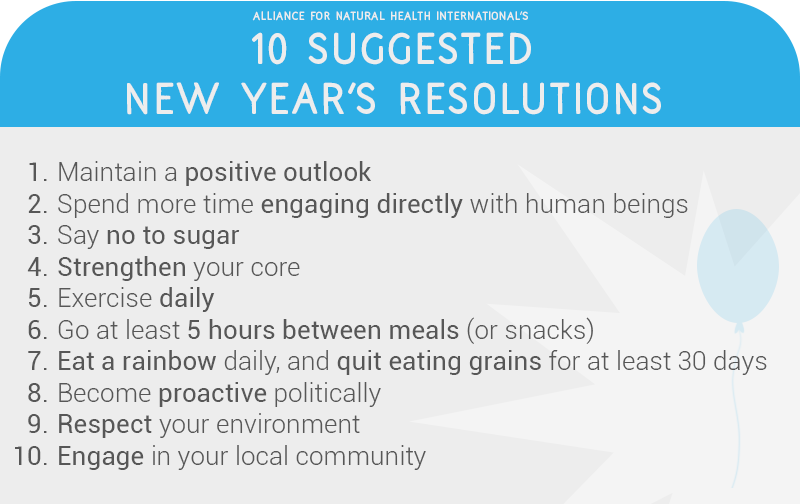Robert Verkerk, PhD
Executive & scientific director, ANH-Intl
All around us, signs are emerging that society as a whole is recognising things that many of us die-hard natural health advocates have known for a long time. These include the fact that many pharmaceutical drugs don’t work particularly well – if at all – for a wide range of conditions; that exercise can be better than drugs; and that what governments say is good for us could actually be harming us – and, curiously, vice versa.

Pharma’s collapsing house of cards
Last year’s literary disclosure by one of the key promoters of evidence-based medicine, the Cochrane Collaboration’s Dr Peter Gøtzsche, joins a lengthy list of similar headline-grabbing exposés. It came almost a full decade after one of GSK’s head honchos, Dr Allen Roses, made highly controversial statements about drugs not working on most patients back in December 2003.
US pharmacist-turned-change-agent, Dr Leyla Ali, is soon to release a book, Off Balance: The American Way of Life, which features me in an interview. It’s very accessible, sometimes amusing and frequently poignant. It’ll be available from 24th February and you can pre-order a copy now.
Exercise: the new drug
As pharmaceutical executives are forced down from their pedestals, we are now fortunate to live in an era in which the science on non-pharmaceutical measures to protect us against disease is expanding rapidly. And what a revelation it’s been to receive increasing confirmation that many of us can get more benefits by simply moving more than we can from taking drugs!
Mega-buck myths exposed
We’ve also witnessed the unravelling of a number of monster myths that have, for many years, been fundamental to both Big Food and Big Pharma’s bottom lines – as well as to government advice. These myths include “most over-50s should take statins to lower cholesterol” and “we should all avoid saturated fats like the plague”. Oh, and how about: “candy’s a suitable reward for well-behaved children”?
With these issues in mind, there’s never been a greater justification to reduce trust in our governments or mainstream health professionals or food suppliers. Nor have we ever been in a better position to take responsibility for our own health – and for our lives more generally.
Resolving resolutions
For many of us, the new year is one of the best times to initiate new behaviours. If anyone is still undecided about their new year’s resolutions – assuming you wish to entertain the idea of course – here are a few ideas from us:
- Maintain a positive outlook irrespective of what challenges you face. Sometimes, it’s helpful to reflect on those that have excelled in this area. British trials and mountain bike champ Martyn Ashton is someone we can all learn from. He broke his back at a demo at the Silverstone MotoGP in the UK last August. Inspired by Ekhart Tolle, Martyn’s story is captivating. Finished from his hospital bed, he’s enjoyed seeing nearly 7.5 million views of his incredible Road Bike Party 2 video since its launch on 10th December 2013.
- Spend more time engaging directly with human beings. Give your electronic devices and social media second billing – not first. Check out this video and you’ll see the picture. In fact, when you’ve read to the end of this article, go and talk to a human being!
- Say no to sugar. Human society is addicted to the stuff – and why on earth do we view it as a treat after we’ve had some good food, or worse still, give it to children when they’ve been good?
- Strengthen your core. Our sedentary lives wreak havoc with our structure. Many people realise they need to lose weight off their core and strengthen it, but too few work on the back, focusing more on the more visible abs. The simple program developed by Dr Eric Goodman can work miracles – and you lose nothing trying! Yoga, pilates and other forms of practice and activity are other options.
- Exercise daily. If you’re too busy to exercise, you probably need to exercise even more, especially if your busy-ness keeps you locked behind a desk. Don’t sit for more than 3 hours without some kind of activity. If you have a desk job, a sponge exercise mat by your desk can work wonders. In our office, we’ve found the short workouts offered in Azumio’s Instant Fitness app, which you can run off a smartphone, invaluable! And you can do them with members of your work team or family! Try and accrue at least 4 hours of moderate to intense activity weekly, making sure you distribute this throughout the week.
- Go at least 5 hours between meals (or snacks). For many, this can be transformational. It also runs completely against the commonly held position of many older-school dieticians who continue to preach the ‘little and often’ mantra, forcing many people deeper and deeper into metabolic syndrome. Eating two main meals, not three, is sufficient for most once the body has adapted.
- Eat a rainbow daily, and quit eating grains for at least 30 days. Plant nutrients, dressed up in the five different colour groups – green, blue/purple, orange, red, white/tan – are vital to a host of bodily functions. In particular, they support our ability to offset the effects of damaging free radicals and to successfully metabolise and excrete toxins that are both produced internally and taken in from our food, water, air or through the skin. As for gluten and grains more generally, check out Dr David Perlmutter’s reasoning for saying we should all opt to go grain-free. Even those without diagnosed coeliac disease have experienced dramatic improvements in health by simply cutting out (entirely) the Western’s world’s main staple. A staple, remember, that was introduced to our diet just 12,000 years ago. Try it for 30 days, and if you notice an improvement – stick with it! You’ll reap huge benefits later in life.
- Become proactive politically. Sitting on the sidelines is no longer an option. We need as many of us as possible to engage in the political process, even if it means being civilly disobedient in the mould of Mahatma Gandhi. We need to help to re-shape the system of democracy, government, production and power to one we think might serve the next generation better.
- Respect your environment. Humans are often selfish and many fail to recognise their own dependence on the natural environment. We are of nature, and our bodies return to it when our work here is done. Our bodily system has evolved with nature, and that’s why we respond so well to dietary and lifestyle changes and generally not so well to drug treatments based on new-to-nature molecules. Whether it’s picking up litter on the roadside or saving a rainforest, act in ways that help to protect and preserve the natural environment.
- Engage in your local community. The more worldly we become, the easier it is to forget to engage with the people who live and work immediately around us. We’re social beings, and the more we give to our local communities, the more we get back from them.
Too many new resolutions can make compliance tough, so we’ve limited our suggestions to ten. But if you’ve got other ideas that are working for you, please engage in the Comments below and tell us about them!
We’re looking forward to a year of positive transformation on all levels – and we’re looking forward even more to working with you in whatever way you can to make our joint visions a reality.








Comments
your voice counts
There are currently no comments on this post.
Your voice counts
We welcome your comments and are very interested in your point of view, but we ask that you keep them relevant to the article, that they be civil and without commercial links. All comments are moderated prior to being published. We reserve the right to edit or not publish comments that we consider abusive or offensive.
There is extra content here from a third party provider. You will be unable to see this content unless you agree to allow Content Cookies. Cookie Preferences